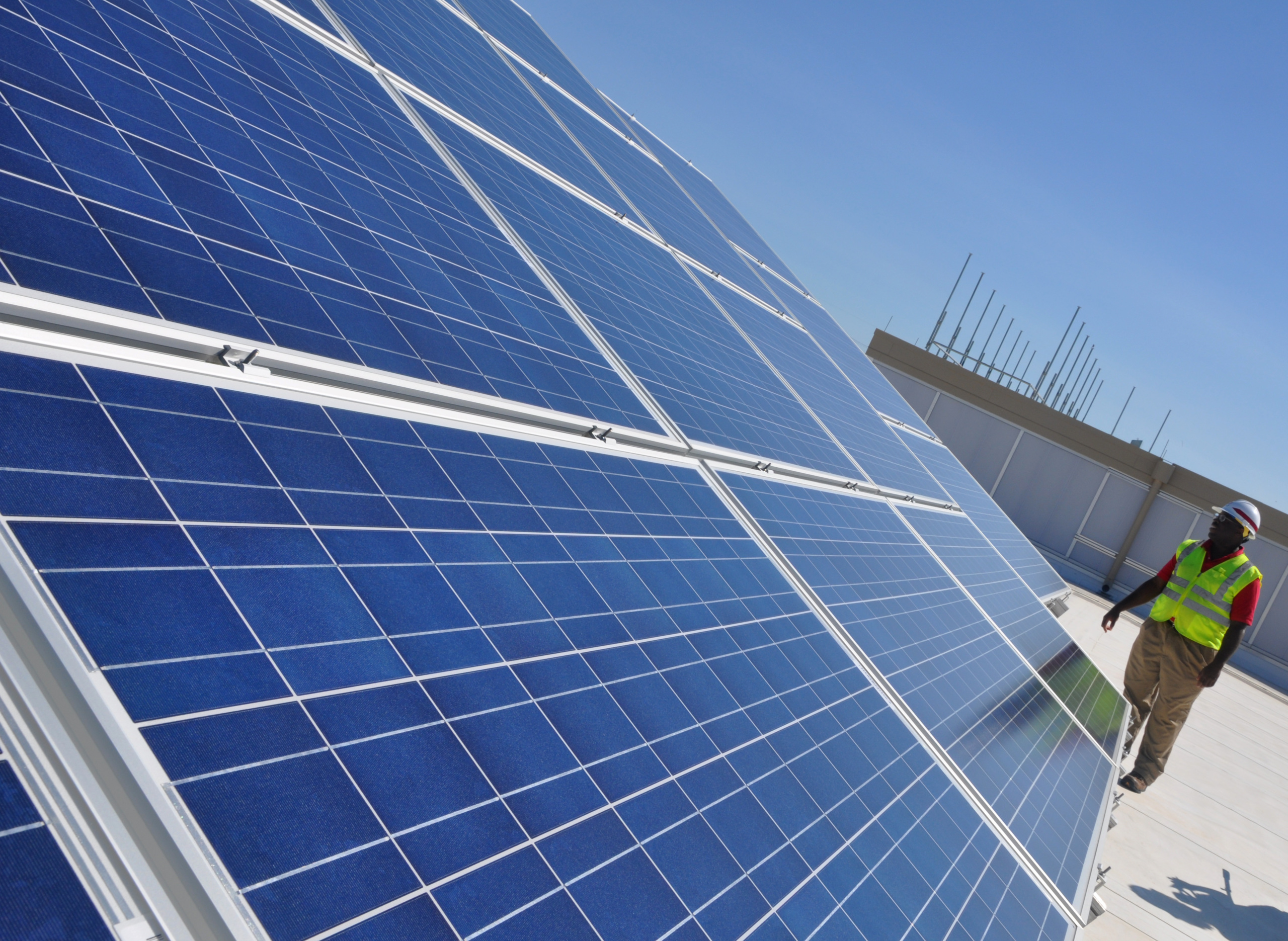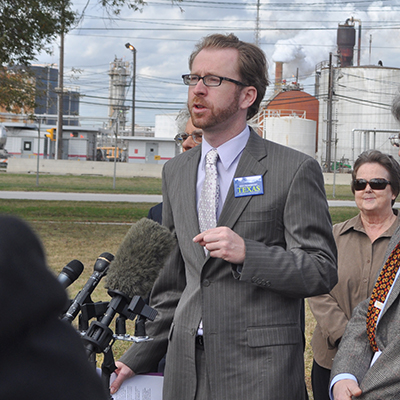
Vote No on HB 17 (Deshotel)
Bill attacks local control, energy efficiency, clean energy, climate action
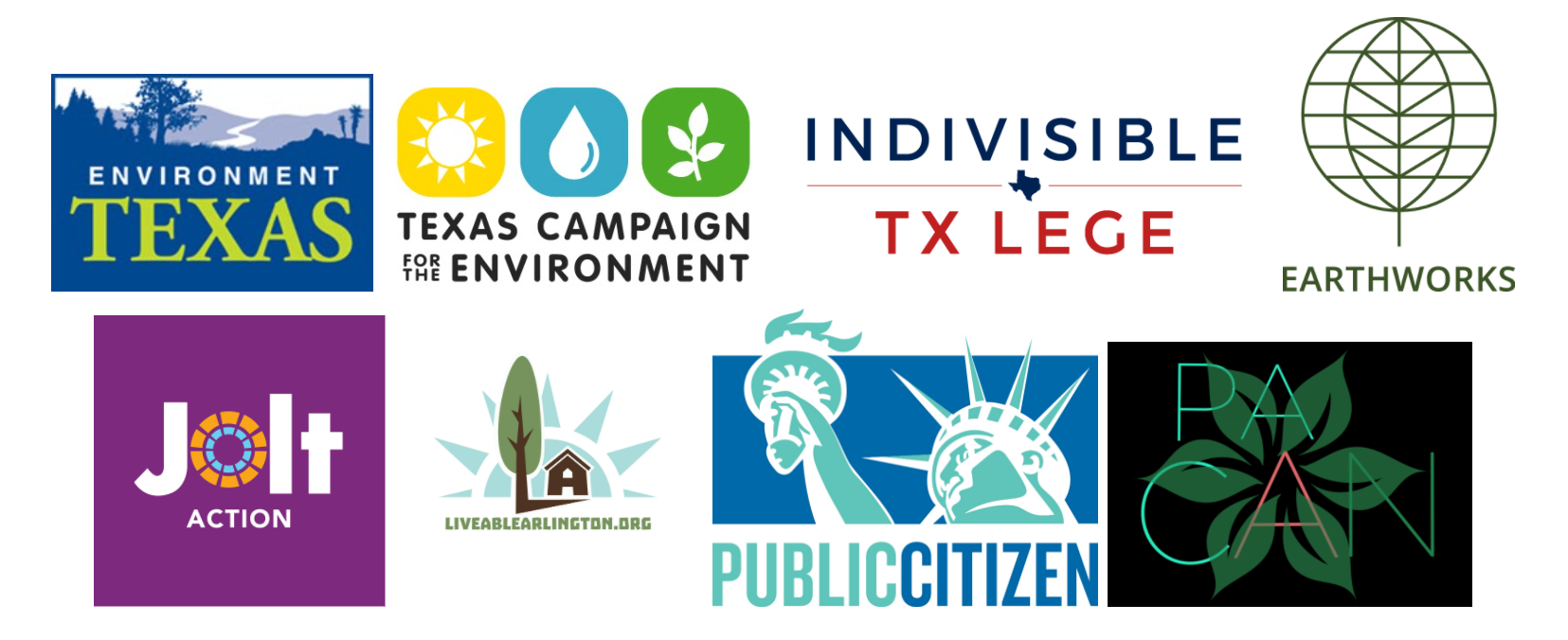
What are the big gas companies afraid of?
They are afraid that communities will choose to repower with clean energy. So they are trying to take away that option by backing a series of bills across the country, including HB 17, to restrict our freedom to move to clean energy and reduce methane gas pollution in buildings. The bill strips local elected officials’ ability to best address the energy needs and interests of their constituents.
HB 17 will increase costs for consumers
Efficient, electric technologies have come a long way in the past twenty years. Today, electric heat pumps can heat and cool homes more efficiently and cheaply than gas or oil furnaces. According to the Rocky Mountain Institute, a mixed-fuel home (with gas furnace, water heater, air conditioning, and new gas connection costs) has a higher up-front cost than the all-electric home, which uses the heat pump system for both heating and cooling. The all-electric home has 7% lower annual utility costs. An all-electric home saves $4,400 in net present costs and 15 tons of CO2 emissions over a 15-year period.
HB 17 will increase dangerous indoor air pollution
Natural gas stoves are a significant source of unhealthy indoor air pollution, often reaching levels that would be illegal outdoors. This pollution is linked to health impacts such as worsening respiratory conditions like asthma and COPD. Pointing to ventilation isn’t a solution because many stoves don’t have vents that lead to the outdoors, and therefore just circulate the pollution within the living space. On top of that, most people don’t use their cooking vents because they are noisy. Electric induction stoves are clean to operate, just as responsive as a natural gas stove, and are never hot to the touch.
HB 17 will make it harder to fight climate change
Methane gas in buildings is responsible for 12% of U.S. greenhouse gas emissions. Scientists are clear that, in order to avoid the worst impacts of global warming, including more frequent and severe extreme weather, we must eliminate climate pollution by mid-century. HB 17 will tie the hands of local officials in cutting this pollution.
HB 17 will make us more vulnerable to blackouts
According to energy consulting firm Wood Mackenzie, “gas-fired plants … were the source of the biggest problems” of the blackout. Some gas plants shut down as key components froze and others weren’t able to get gas supply as the oilfields and natural gas equipment froze. Shifting more of our homes to be powered by electricity can actually reduce the strain on the gas system, and the chances of another blackout. Electrifying homes and commercial buildings would cut gas consumption in Texas buildings by 378.4 billion cubic feet by 2050 – representing about 8% of Texas’ total consumption of gas in 2019. We needed every molecule of gas we could get during the blackouts – electrification would have made more gas available to keep the lights and heat on. HB 17 was not filed as a response to the freeze and blackouts. It is part of a national effort by the natural gas industry to stop governments from encouraging electrification of buildings. Similar bills have been filed in at least 13 other states.
Amendments
We expect an amendment to be offered by Chairman Chris Turner and is acceptable to the author, which would clarify that cities can still offer rebates and educate residents about alternatives to methane gas, as well as make changes to codes. That’s helpful, but to be clear, the bill is fundamentally unacceptable to the environmental community. We urge you to vote FOR the C. Turner amendment, but still vote AGAINST the bill at the end.
Texans want more renewable energy, and our local decision-makers should have the authority to adopt policies that reflect and act on their community’s interests, needs and values. When the state of Texas blocks communities from passing their own laws, it is silencing local democracy and hurts community health and the environment.
Vote no on HB 17 to protect our communities’ freedom to choose clean energy.
Note this bill will be scored on the Environment Texas 2021 Legislative Scorecard.
Topics
Authors
Luke Metzger
Executive Director, Environment Texas
As the executive director of Environment Texas, Luke is a leading voice in the state for clean air and water, parks and wildlife, and a livable climate. Luke recently led the successful campaign to get the Texas Legislature and voters to invest $1 billion to buy land for new state parks. He also helped win permanent protection for the Christmas Mountains of Big Bend; helped compel Exxon, Shell and Chevron Phillips to cut air pollution at four Texas refineries and chemical plants; and got the Austin and Houston school districts to install filters on water fountains to protect children from lead in drinking water. The San Antonio Current has called Luke "long one of the most energetic and dedicated defenders of environmental issues in the state." He has been named one of the "Top Lobbyists for Causes" by Capitol Inside, received the President's Award from the Texas Recreation and Parks Society for his work to protect Texas parks. He is a board member of the Clean Air Force of Central Texas and an advisory board member of the Texas Tech University Masters of Public Administration program. Luke, his wife, son and daughters are working to visit every state park in Texas.
Find Out More
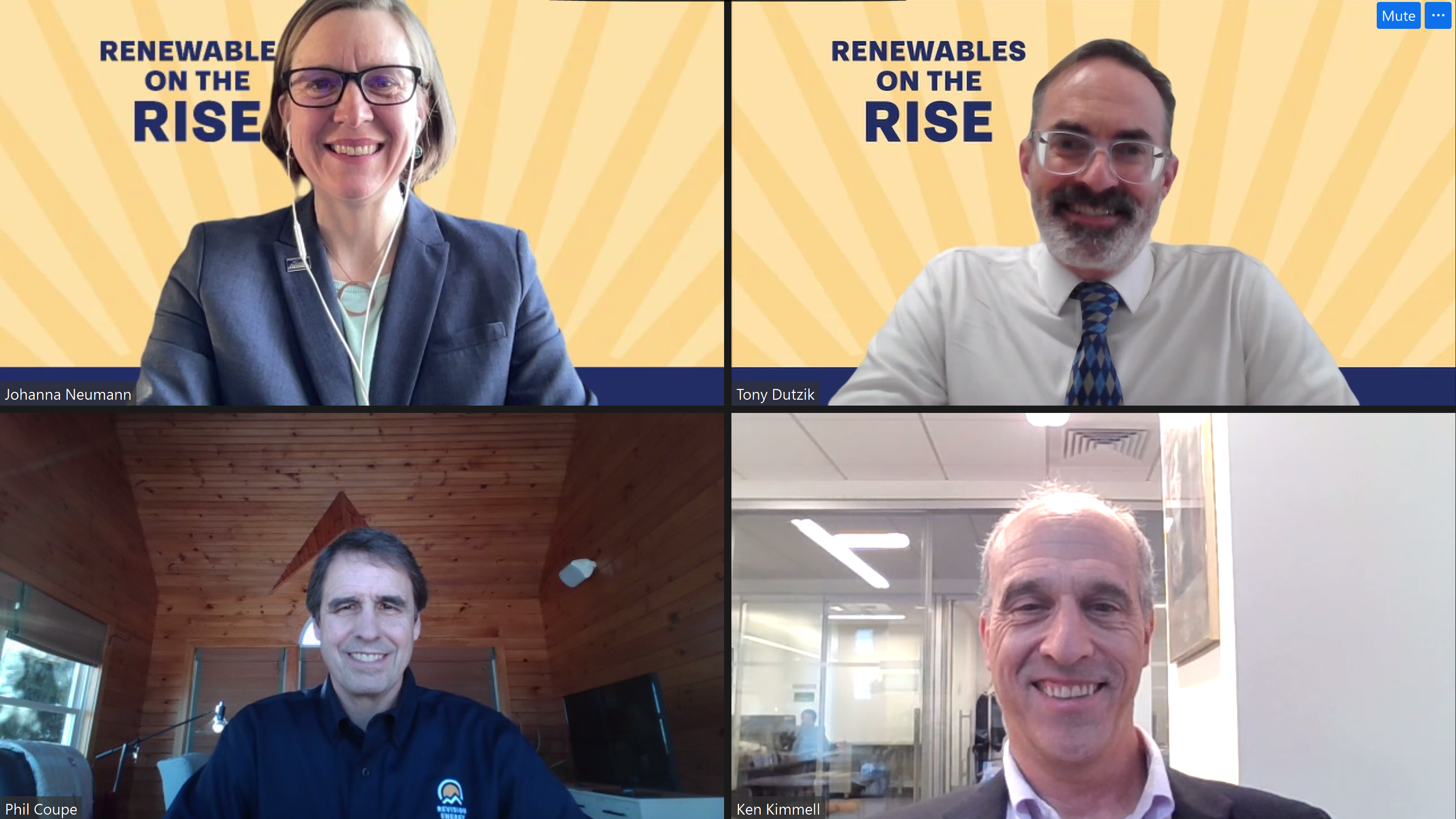
Key takeaways from Renewables on the Rise: Success Stories
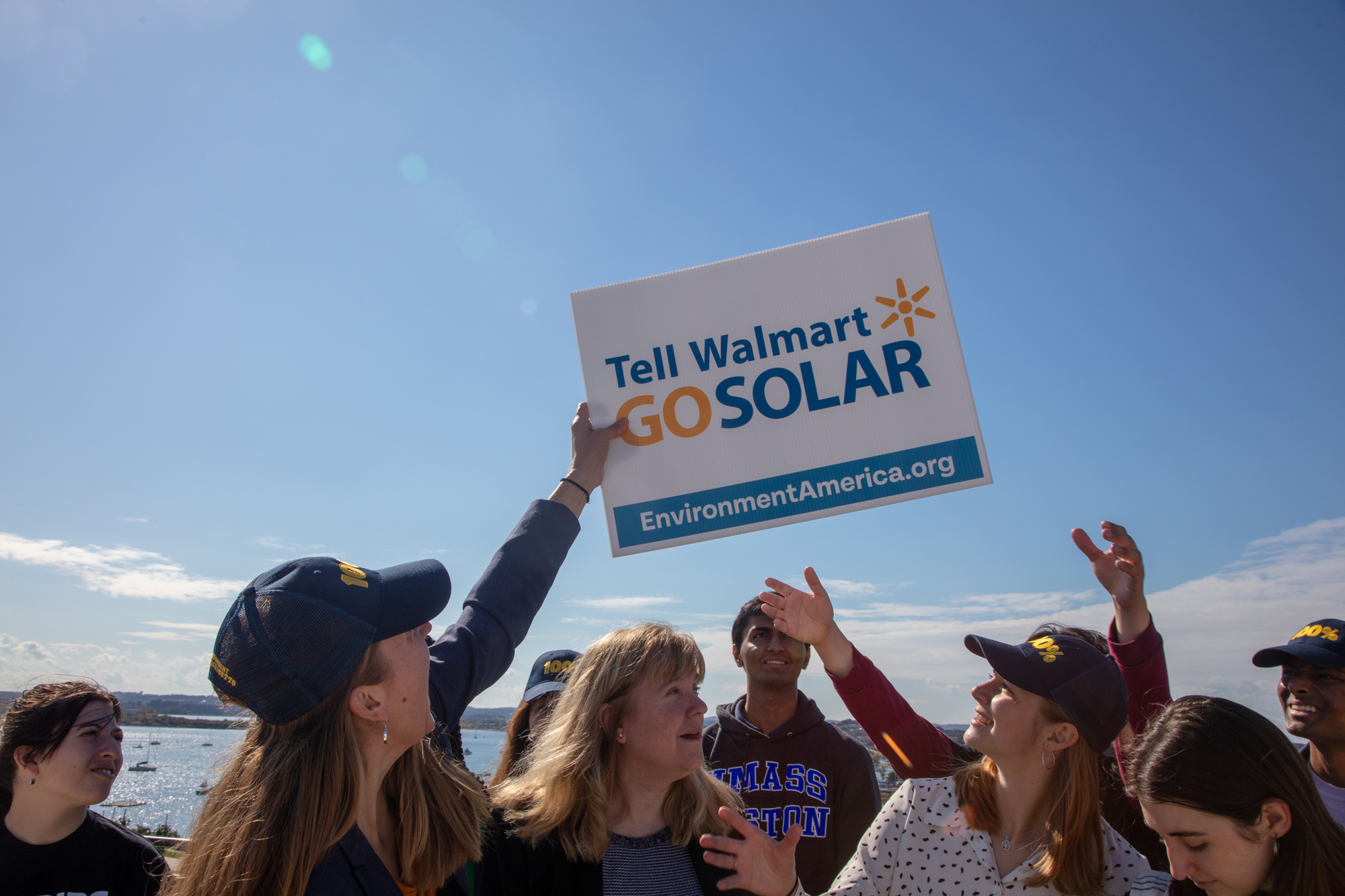
Which 10 American retailers can lead the way on rooftop solar?
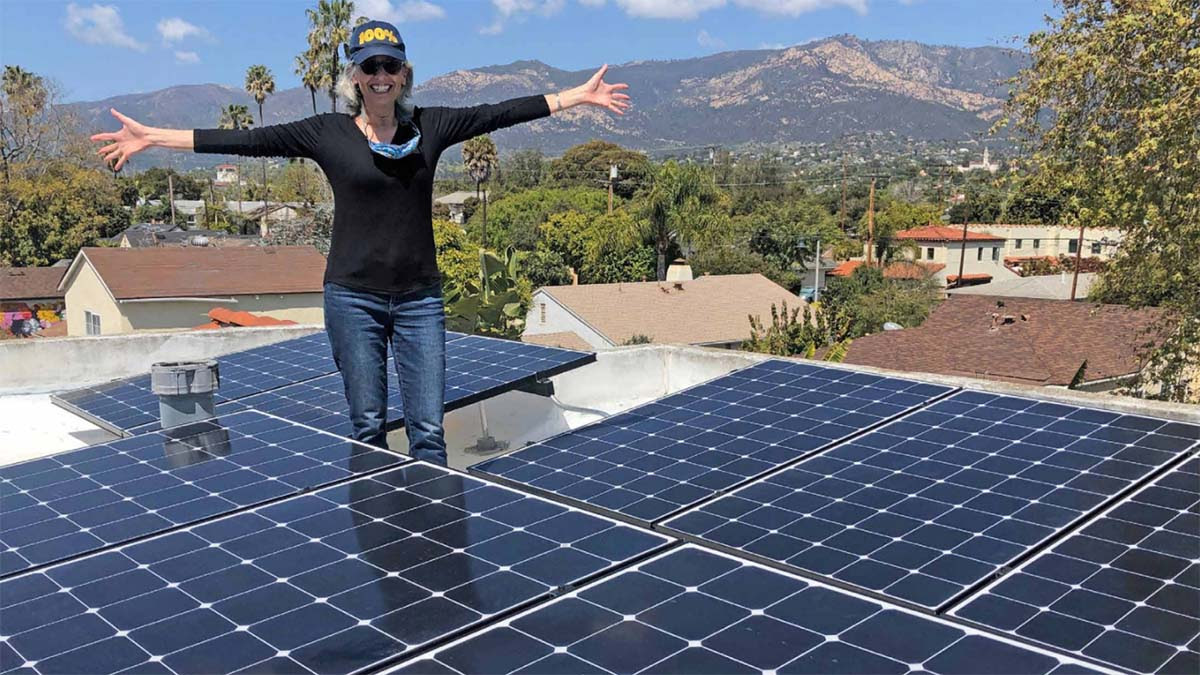
More rooftop solar, less red tape
